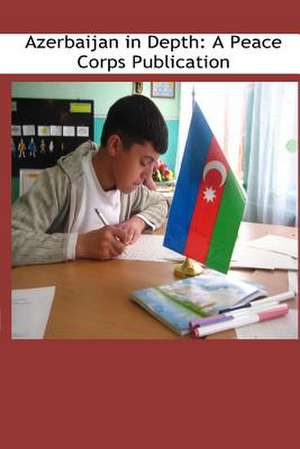Azerbaijan in Depth
Autor Peace Corpsen Limba Engleză Paperback
Preț: 82.15 lei
Nou
Puncte Express: 123
Preț estimativ în valută:
15.72€ • 17.09$ • 13.22£
15.72€ • 17.09$ • 13.22£
Carte disponibilă
Livrare economică 31 martie-14 aprilie
Preluare comenzi: 021 569.72.76
Specificații
ISBN-13: 9781502411334
ISBN-10: 1502411334
Pagini: 80
Dimensiuni: 152 x 229 x 4 mm
Greutate: 0.12 kg
Editura: CREATESPACE
ISBN-10: 1502411334
Pagini: 80
Dimensiuni: 152 x 229 x 4 mm
Greutate: 0.12 kg
Editura: CREATESPACE
